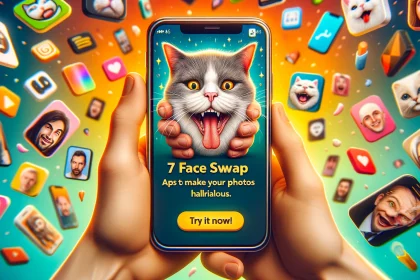In a groundbreaking move, Microsoft has announced its support for the latest USB 4 80Gbps standard. This new development is set to revolutionize data transfer speeds, offering unprecedented performance for users worldwide. In this article, we delve into the details of this announcement and its implications for both consumers and the tech industry.
Background of USB Standards
The Universal Serial Bus (USB) has undergone a remarkable evolution since its inception. From the initial USB 1.0, introduced in the mid-1990s, to the latest versions, each iteration has brought significant improvements in speed and functionality.
- USB 1.0: Launched in 1996, offering 1.5 Mbps.
- USB 2.0: Introduced in 2000, with speeds up to 480 Mbps.
- USB 3.0: Debuted in 2008, significantly increasing transfer rates to 5 Gbps.
- USB 3.1/3.2: Further enhancements led to speeds of 10 Gbps and then 20 Gbps.
- USB4: Released in 2019, with a maximum throughput of 40 Gbps.
What is USB 4 80Gbps Standard?
Understanding the Technical Leap
USB 4 80Gbps represents the latest advancement in Universal Serial Bus (USB) technology. Doubling the maximum throughput of the previous USB 4 version, it promises to deliver speeds of up to 80 gigabits per second. This leap in data transfer rate is not just a quantitative change, but it marks a qualitative shift in how we interact with technology.
Key Features and Benefits
- Enhanced Data Transfer Speeds: The primary advantage is the remarkable data transfer rate, enabling quicker file transfers and more efficient workflows.
- Backward Compatibility: Ensuring a seamless transition, the standard maintains backward compatibility with older USB versions.
- Improved Power Delivery: It supports enhanced power delivery protocols, making it ideal for charging devices and powering peripherals.
- Versatile Connectivity: The standard supports a range of protocols like Thunderbolt 3, DisplayPort, and PCIe, offering versatile connectivity options.
Microsoft's Role and Implementation
Integration into Microsoft Products
Microsoft's endorsement is significant in driving the adoption of this standard. The tech giant plans to integrate the USB 4 80Gbps standard into its range of products, including Surface devices and Windows operating systems. This integration will ensure that Microsoft's products remain at the forefront of technological innovation.
Impact on the Tech Ecosystem
Microsoft's support for USB 4 80Gbps will likely encourage other tech companies to follow suit. It sets a benchmark for device manufacturers, leading to a more widespread implementation of this technology across various gadgets and computers.
Implications for Consumers and Industry
Enhanced User Experience
For consumers, this development means faster and more efficient data transfer, leading to a smoother and more productive user experience. It also opens up new possibilities for high-resolution video streaming, gaming, and virtual reality applications.
Boost for Tech Industry
The tech industry stands to benefit from increased demand for compatible devices and peripherals. It also paves the way for innovation in data-intensive fields like artificial intelligence and big data analysis.
FAQs
Q: Will my existing USB devices work with the new standard?
A: Yes, USB 4 80Gbps maintains backward compatibility, so your existing devices will still work.
Q: How soon can we expect products with USB 4 80Gbps support?
A: While a specific timeline hasn't been announced, we can expect products to start rolling out soon after Microsoft's integration.
Q: Does USB 4 80Gbps require new cables?
A: It might require new cables to achieve the maximum data transfer speed, though it will work with older cables at reduced speeds.
Conclusion
Microsoft's announcement to support the USB 4 80Gbps standard is a significant milestone in USB technology. It not only enhances the capabilities of future devices but also sets a new standard for data transfer and connectivity. As we await the integration of this technology into products, it's clear that the future of data transfer
is looking faster and more efficient than ever before.
The Future Outlook
Paving the Way for Innovations
This advancement is not just a step forward; it's a gateway to a range of innovations. With the increased data transfer speeds, we can expect new applications and technologies to emerge, particularly in areas requiring high data bandwidth.
Potential for Global Tech Advancements
The global tech landscape is poised for a shift with this development. As more companies adopt the USB 4 80Gbps standard, we're likely to see a new wave of high-performance devices and applications, reshaping our interaction with technology.
In conclusion, Microsoft's support for the USB 4 80Gbps standard marks a pivotal moment in technological advancement. It's a testament to their commitment to innovation and a hint at the exciting developments we can expect in the future of data transfer and connectivity.



